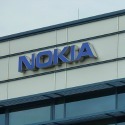
Foreign equipment vendors experience far worse treatment in China than Huawei does overseas, say critics pushing for more stringent curbs on the Chinese vendor. Weeks after Finland's Nokia was reported to have landed a core network deal with China Unicom, the news it scraped only a 10% share of business will give them further ammunition.
The confirmation came in Nokia's own statement about the China contract. Previously outed as a vendor to Unicom, the Finnish firm today said it would supply a small bundle of core network products, including unified data management, session management and user plane functions. All will play important roles in managing subscriber data and services for one of China's big three operators.
The share roughly corresponds to Ericsson's 11.5% of a project to build a 5G radio access network for China Mobile, Unicom's larger rival. Just as the rest of that job went to Chinese vendors, Huawei and ZTE are likely to have picked up most of the Unicom work.
The similarity ends there, however. Judging by earlier reports about the value of the deal, Ericsson's role in Mobile's 5G RAN is worth about $640 million in revenues, about 38% of what the Swedish firm made in China last year. Nokia cannot expect a comparable haul from a core network market that accounts for a relatively small share of telco spending. Between 2019 and 2024, the RAN market is expected to generate about $33 billion annually, according to Dell'Oro, a market-research firm. The mobile core market is worth just $8 billion each year, it says.
The disparity shows up in the vendors' financial reports, too. Ericsson's RAN business made $16.6 billion in revenues last year, while Nokia's pulled in $13.2 billion. At the digital services unit responsible for core network and other software goodies, Ericsson generated only $4.3 billion in 2019. Nokia's comparable software business managed sales of $3.1 billion.
Nevertheless, a bigger share of Unicom's core network project would have been welcome after Nokia failed to land a single RAN contract in China's recent round of 5G tenders. Acknowledging it did not provide the "local customization" that China's operators sought, Nokia signaled its retreat from the world's biggest 5G RAN market in late April. Instead, it would focus on the sale of other network products to Chinese customers, it said.
A core network presence at least gives Nokia an important toehold at a turbulent time. It might even be a way back into the more lucrative 5G RAN market for a company whose Chinese business remains a joint venture with China Huaxin, a local player. Opportunities could materialize if the latest US sanctions against Huawei – designed to cut off its supply of vital components – prove as disruptive as some analysts say they will.
"As soon as Huawei stops being able to manufacture chips, it will have pretty substantial problems," said Dan Wang, an analyst with Gavekal Research, during a recent interview uploaded to Vimeo. Of the 5G basestations China Mobile plans to deploy this year, 60% are supposed to come from Huawei and another 25% from ZTE, he says. "I think this will have pretty substantial effects on China's ability to keep rolling out 5G."
Want to know more about 5G? Check out our dedicated 5G content channel here on
Light Reading.
Moreover, not everyone seems convinced by Ericsson's decision to sacrifice short-term profitability for market-share gains. Earlier this month, the Swedish vendor said gross margins in China would be "negative" in the second quarter and that it would incur a $109 million write-down against Chinese inventory. Ericsson insists the move will pay off in the long run, and its profitability has improved in the last three years, but its strategy has previously been questioned by analysts during financial reporting updates.
The latest developments in China come as Huawei's opponents continue their campaign to have the Chinese vendor banned from European markets where it has become the preeminent supplier. The allegation that Huawei spies for the Chinese government – regularly denied by the company – is the usual reason they give, but critics have also drawn attention to China's apparent unwillingness to play fair. "It is very clear that Chinese suppliers have better conditions outside of China than non-Chinese players have inside China," said John Strand, the CEO of Danish advisory firm Strand Consult, in emailed comments. After Nokia's latest statement, discontent will only grow.
Related posts:
— Iain Morris, International Editor, Light Reading
Read more about:
AsiaAbout the Author(s)
You May Also Like











